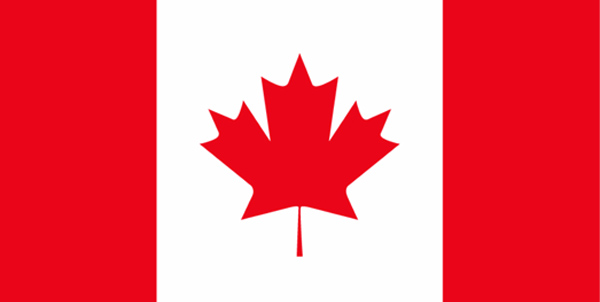Canada is a federal state with a constitutional monarchy, which King Charles III as its head of state. It is o fficially bilingual and multicultural at the federal level. Canada is the world’s second largest country by total area. It has a common border with the United States to the south and northwest that is the longest in the world. It is a federation consisting of ten provinces and three territories, with many natural attractions. One can explore mountains and lakes, ski slopes and stunning harbors. Canada has ranked number one overall according to the 2021 “Best Countries in the World” in US News report. Canada also earned the top spot in “Quality of Life” and “Social Purpose.” Canada has ranked high since 2016 when it received second place in US News’ Best Countries reports Canada is a recognized world power and a member of many international institutions,including G7, G8, G20, NATO, NAFTA and OECD and WTO.
Climate & Environment
The variety and vastness of Canada’s geography, ecology, vegetation and landform have given rise to a variety of climates throughout the country. Average winter and summer high temperature across Canada vary according to the location.
Maximum Temperature : 35 Degree Celsius
Minimum Temperature : -14 Degree Celsius
Economy
The economy of Canada is a highly developed mixed-market economy. It is the 8th-largest GDP by nominal and 15th-largest GDP by PPP in the world. As with other developed nations, the country’s economy is dominated by the service industry which employs about three quarters of Canadians. Canada has the third-highest total estimated value of natural resources, valued at US $33.98 trillion in 2019. It has the world’s third-largest proven oil reserves and is the fourth-largest exporter of crude oil. It is also the fifth-largest exporter of natural gas.
In the past century, the growth of the manufacturing, mining, and service sectors has transformed the nation from a largely rural economy to a more industrial and urban one. Canada is unusual among developed countries in the importance of the primary sector, with the logging and energy industries being two of Canada’s most important. Canada also has a sizable manufacturing sector, based in Central Canada, with the automobile industry and aircraft industry being especially important.
Canada belongs in one of the very few developed nations which are net exporters of energy. Atlantic Canada has vast o shore deposits of natural gas, and Alberta has large oil and gas resources. The immense Athabasca Oil Sands give Canada the world’s second-largest oil reserves, behind Saudi Arabia.
Meanwhile, Canada has sizable manufacturing sector that is centered in southern Ontario and Quebec, with automobiles and aeronautics representing particularly important industries. Canada is one of the world’s largest suppliers of agricultural products; the Canadian Prairies are one of the most important producers of wheat, canola, and other grains. Canada is the largest producer of zinc and uranium, and is a global source of many other natural resources, such as gold, nickel, aluminum and lead.
Useful Links
www.cic.gc.ca
www.canadainternational.gc.ca
www.vfsglobal.ca/canada/nepal
www.nelsonedu.com


